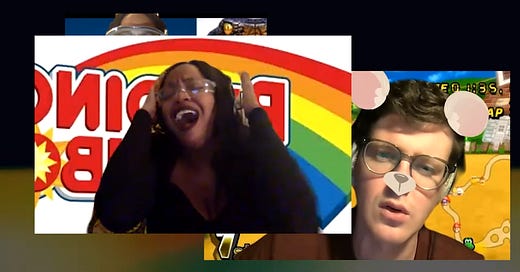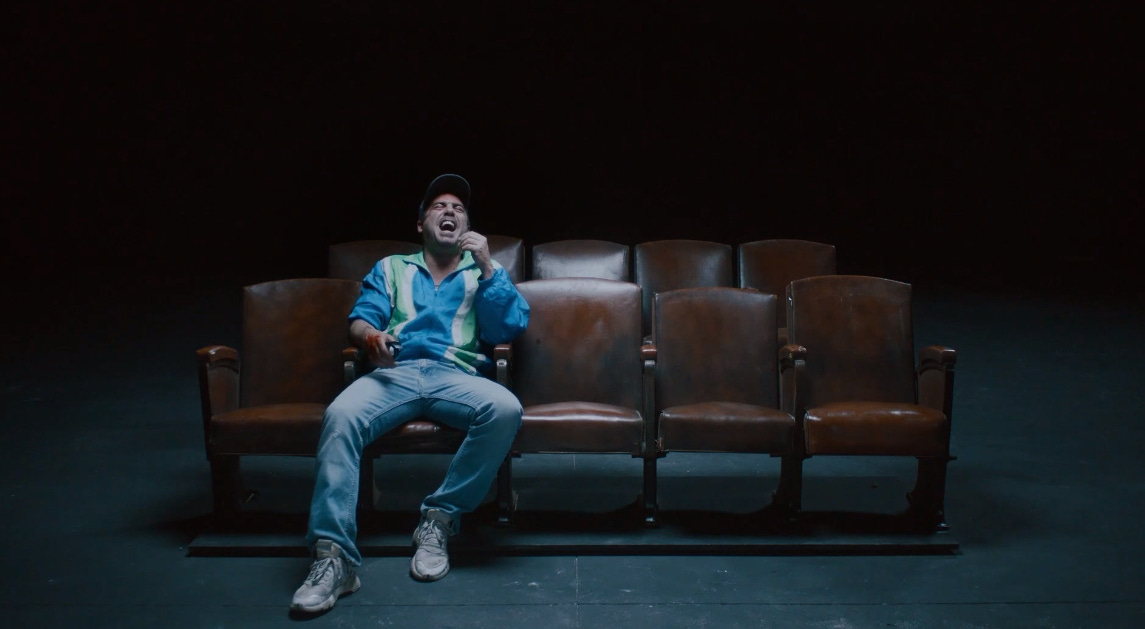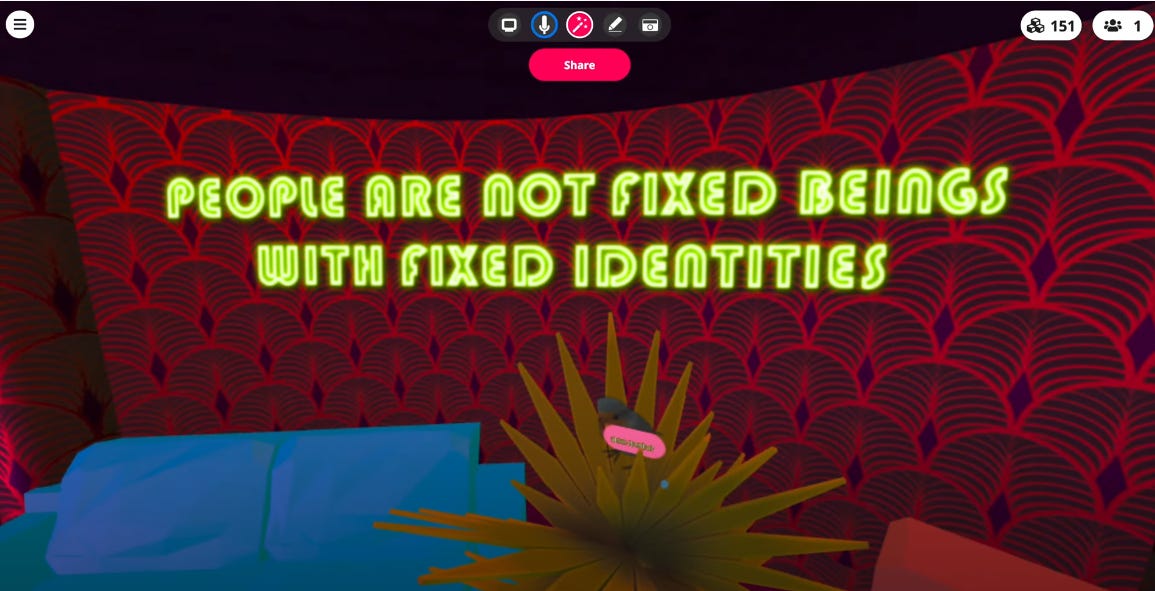Festival Round-Up: It’s the End of the World
A cold, bleak array of work looks to dark times ahead
“Everything’s Not Fine,” goes the opening lyric of Capsule, Whitney White and Peter Mark Kendall’s digital Under the Radar premiere. Then it repeats: “Everything’s Not Fine.”
Already faced with reinventing themselves for the virtual space, the January festivals suffered rough timing this year, kicking off just as insurrectionists stormed the U.S. Capitol and attempted to overthrow the government. It’s been hard to focus one’s energies on much of anything else.
Not helping matters: festival works don’t tend to offer easy escape. That is truer than ever this year. In the disparate works offered by Under the Radar, Prototype and Exponential, the common theme seems to be a cold, bleak world collapsing in on itself, and dark times ahead. Which like, fair.
In Capsule, a tight bond formed in early quarantine by a Black woman and a white man is frayed as world events spin out of control. White and Kendall play some approximation of themselves in the (sort of) song cycle, a kaleidoscopic reflection on the past year. While the gorgeous songs provide some comfort, Capsule eschews easy answers. This is not a “stay connected, we’ll get through this together” kind of piece. It lives in the dread of worse times to come, and the discomfort of hard conversations long put-off. Still, the final song allows some hope that if we confront our own role in society’s collapse, we might just make it.
Also at UTR, Javaad Alipoor and Kirsty Housley’s Rich Kids: A History of Shopping Malls in Tehran probes widening inequality and the growing cost of our performative online personas. The story is told on video and Instagram simultaneously, jumping around in time and between devices faster than even the most seasoned doomscroller could keep up. Even scarier, the show places our individual footprints as consumers in the vast, overwhelming context of history, pushing you to reckon — as much as one’s brains will allow, at least — with our tiny-ness in the vast scheme.
Espíritu, also part of UTR, conjures a similar feeling. In the dark corners of an unknown city late at night, a collection of lost souls despair for their future in a crushing consumerist world. Though the dialogue is vague and hard to grasp onto, the visuals are striking.
Espíritu signifies a visual thread that ran through many shows this year: vast, bare, and darkly post-apocalyptic spaces. That’s also the vibe of ON VIEW: WFHat Exponential, The Murder of Halit Yozgatat Prototype, and many pieces featured in Modulation, a collection of short works which includes sections devoted to “Fear” and “Isolation.” Obviously Covid restrictions play a role, but many artists are choosing to depict their humans as small, lonely blips in a vast darkness.
In digital pieces unconstrained by safety procedures, things are a bit cheerier. For Virtual Queerality (VQ) Live, part of Exponential, Teresa Braun has created a museum/club/squat house for queer artists to “live” together in a strange sort of digital harmony. Braun guides us through a colorful, chaotic space housing audio and video elements chosen by drag performers and gender non-conforming artists to best reflect their identities. Robbed of the shared queer spaces we used to inhabit together, Braun lovingly crafted their own in a form that could only exist online. It’s nice.
Meanwhile 600 Highwaymen’s A Thousand Ways: Part One (A Phone Call)connects you very directly with another human being, albeit by phone. I spent an hour talking with a kind individual, the conversation facilitated by a robot prompting us with questions. I never learnt his name, and I will never speak to him again. But I learnt a lot about him, including some deeply, intrusively personal stuff. And I shared also, though maybe not as much as I should have. Still, as I sat in total darkness after the call (darkness again - part of the instructions), I felt briefly in sync with the world around me.
Unsurprisingly, nothing conjured a stronger feeling of connection than the one and only live, in-person work of the season, Helga Davis & Shara Nova’s video installation Ocean Body at HERE Arts Center. As I arrived, two staff members greeted me warmly. As we waited a few moments to see if anyone else was joining, the three of us chatted about theater. Or at least, I tried. I’d apparently forgotten how to talk to strangers at length, but sputtering attempts were made.
No one else arrived, and I entered. Ocean Body was warm and calming, a gentle look at the intimacy between two women as they are pulled to-and-fro by time and space. The video work kept to close, intimate shots, avoiding the oppressively vast spaces found elsewhere. It was not a thematically deep show, but it was a warm hug, and a feeling of calm lingered.
To maintain one-way traffic, I was sent out of HERE by the backdoor, a harsh ending after such a warm welcome. Ah well. Back to the vast abyss.






